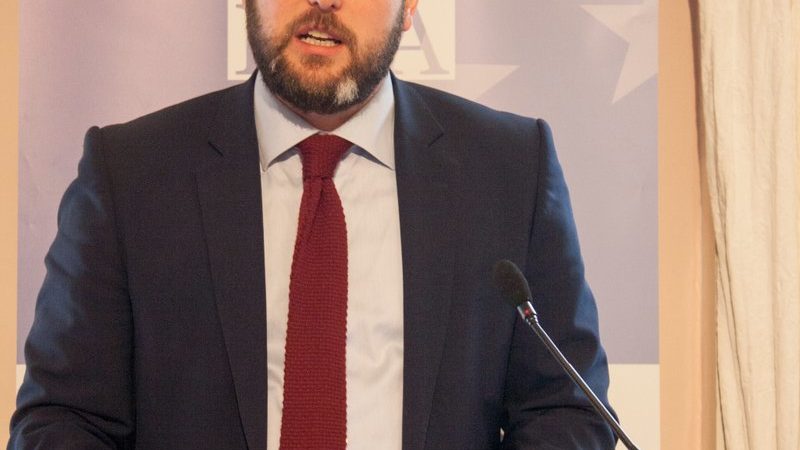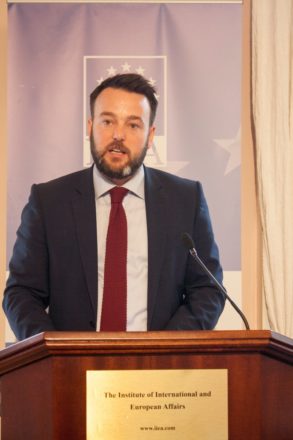

Hard Brexit could be “fundamentally damaging” to the Good Friday Agreement, the leader of Labour’s sister party in Northern Ireland has warned.
In the aftermath of Theresa May’s comment that she does not want “a return to the borders of the past” in Ireland, politicians from the Social Democratic and Labour Party (SDLP) raised “deep concern” and over the “confusion” around Brexit.
Colum Eastwood, SDLP leader, told LabourList he did not think a hard border between Northern Ireland and the Republic would be “possible to enforce”, but noted that holding common EU membership was one of the reasons northern nationalists had signed up to the Good Friday Agreement.
James Brokenshire, Northern Ireland Secretary in the Westminster administration, has said that his team would work with the Irish government to try to ensure the retention of the Common Travel Area, that allows free movement between the two countries.
However, at PMQs last week the SDLP’s Dr Alasdair McDonnell asked May whether she could “understand the confusion that has set in” among Northern Ireland citizens over the future of the border caused by the Government pushing ahead with plans to end freedom of movement with the EU. May replied: “We don’t want to see a return to the borders of the past.”
Speaking to LabourList, Stormont member Eastwood said that he did not believe it would be “realistic” to expect a hard border to be implemented.
“I don’t think it’s realistic that there will be a hard border, I don’t think it’s possible to enforce,” he said. “But I do think if there’s a Brexit, particularly a hard Brexit, we’ll have to find some way of controlling the border. So the question is: where is the border? I think it’s more likely to be in airports and ports on the island of Britain than anywhere across the island of Ireland.”
While he made clear that he was “not suggesting for a second peace is at risk”, Eastwood did issue a warning that elements of the Good Friday Agreement could be thrown into doubt by leaving the EU, saying that “there’s deep concern about Brexit in general.”
“The idea that we would whip away the constitutional blanket that northern nationalists, in particular, have, of common EU membership with the south is fundamentally damaging to our Good Friday Agreement and all of the agreements since,” he said.
“This needs to be said and it needs to be heard. From a northern nationalist perspective, EU membership and that ability to develop our relationships with the south was key to our signing up to all of the opportunities of the Good Friday Agreement.
“I think people need to understand how fundamental the north leaving the European Union would be to our political process. I’m not suggesting for a second peace is at risk, but our relationship with those institutions is definitely at risk.”
Eastwood refused to weigh in on the debate around Labour standing candidates in Northern Ireland, which gained traction earlier this year when a number of party members stood as “Labour Representation Committee” candidates in May’s Stormont elections.
“It’s not for me to decide what the Labour Party do and they can stand candidates if they wish. But I think we provide a social democratic alternative to the Government. That’s a role that we play,” he said.
“They do have about 3,000 members but they also have about 1,500 votes. There was an election last year where they stood candidates in many constituencies across Northern Ireland.
“I don’t believe the case has been made by that experiment and I don’t think Labour would do very well in an election in Northern Ireland. It’s a very different place, with a very different electorate. It’s a decision for the Labour Party to make, not for me.”
Labour will carry out a review of its position against standing candidates before 2020, with Eastwood commenting that “it would be very strange if two sister parties ran against each other in the same jurisdiction.”




More from LabourList
‘After years of cuts, Labour’s local government settlement begins to put things right’
‘The Sherriff of Wild Westminster: what must change in elections bill’
‘The hope that kills you’: Reflections from the final day in Gorton and Denton